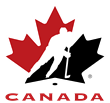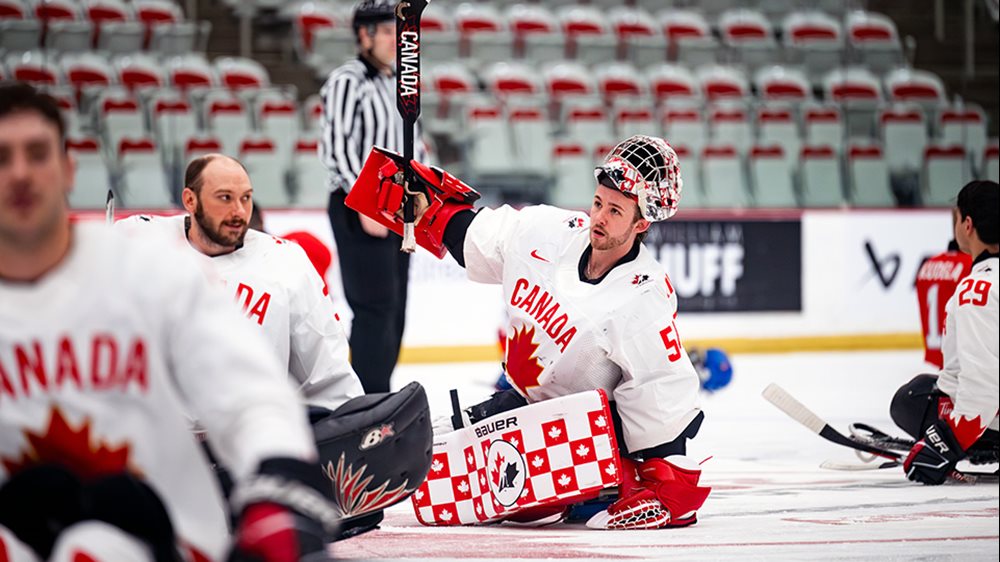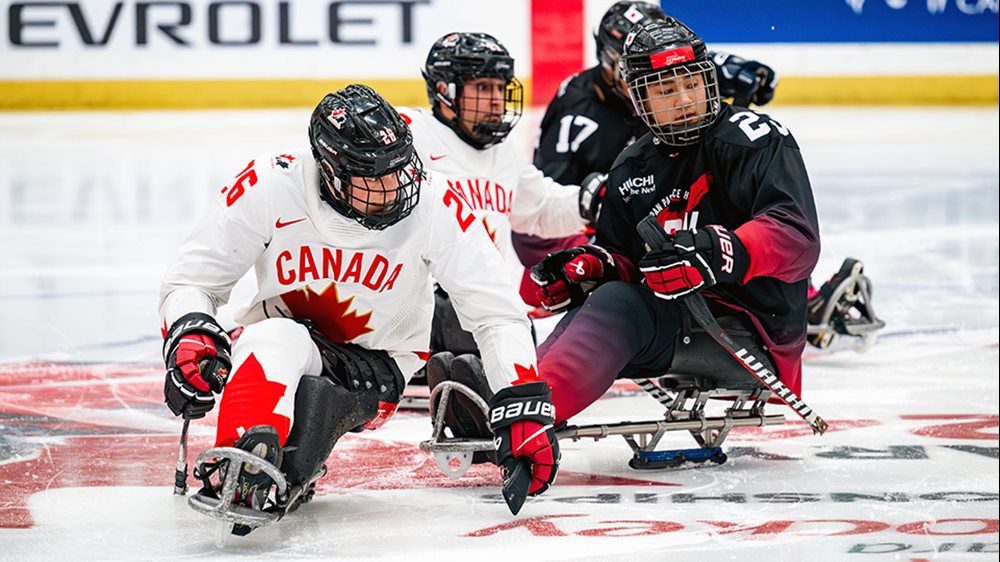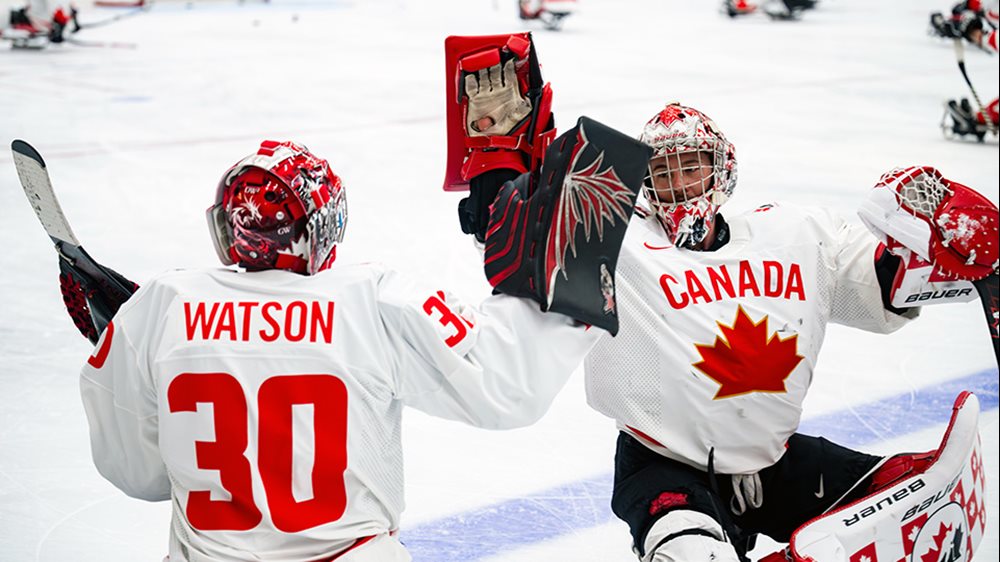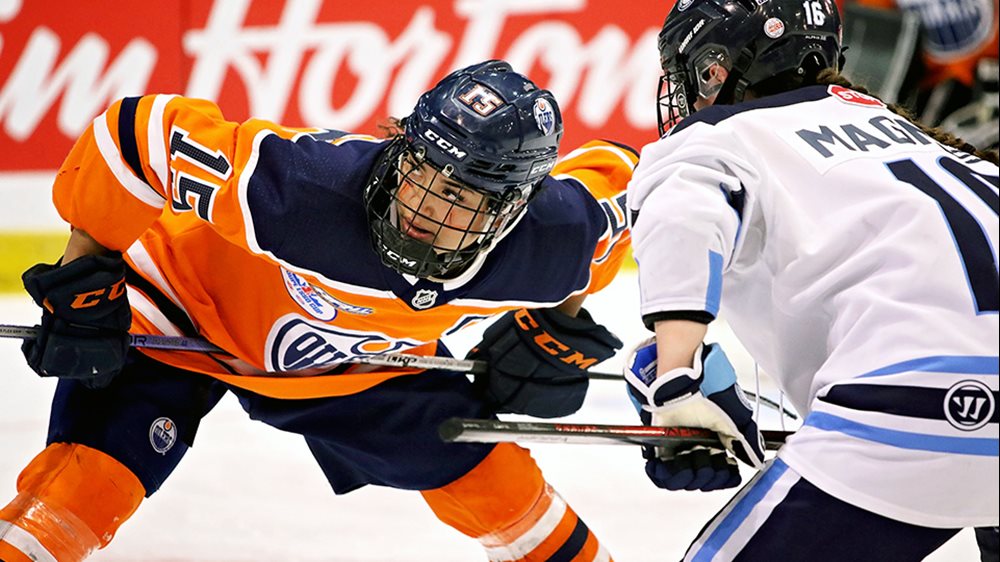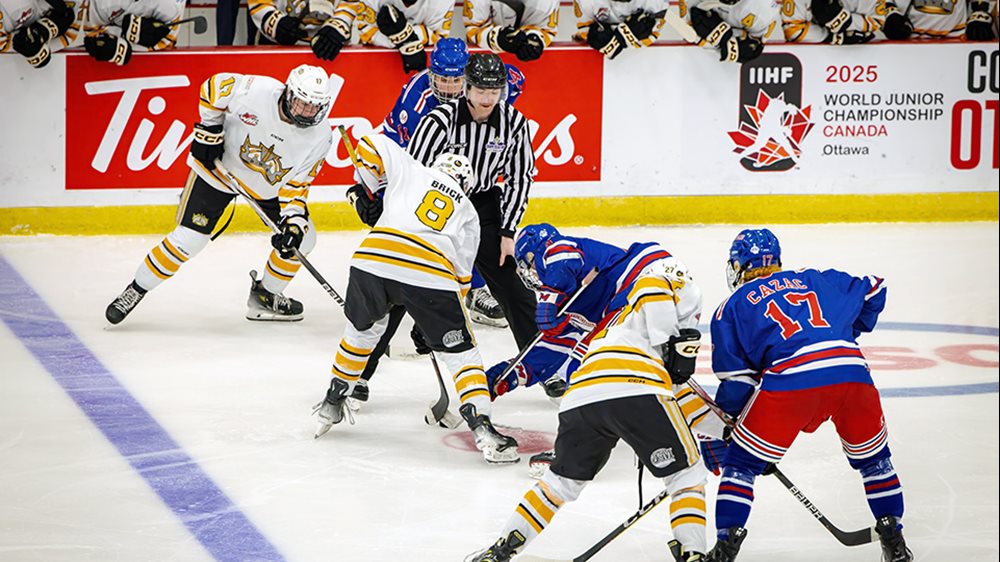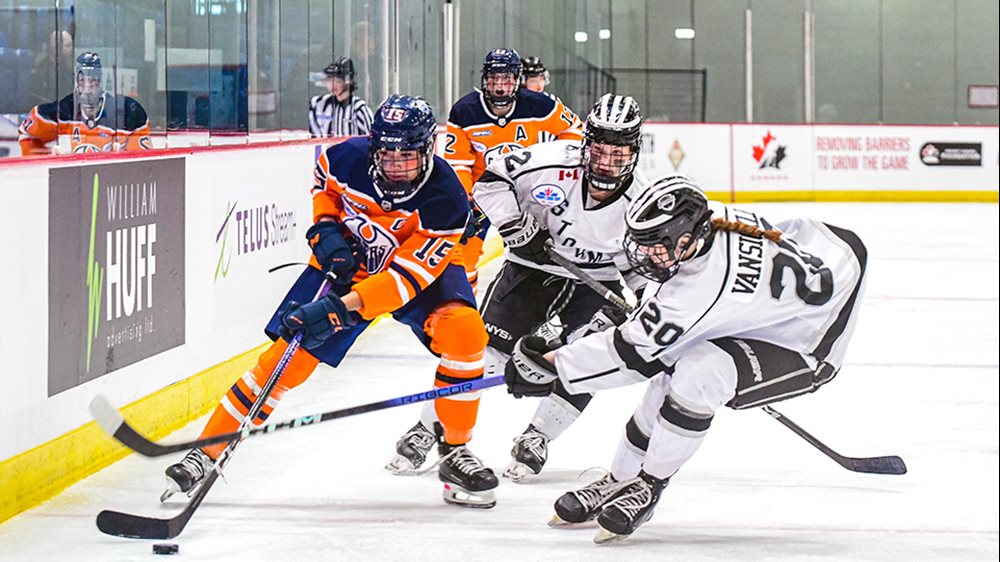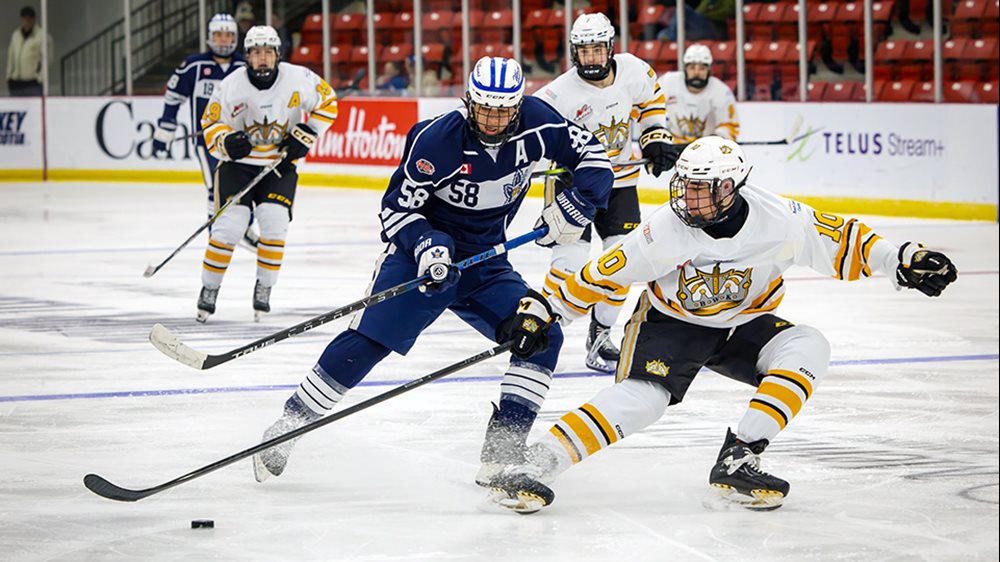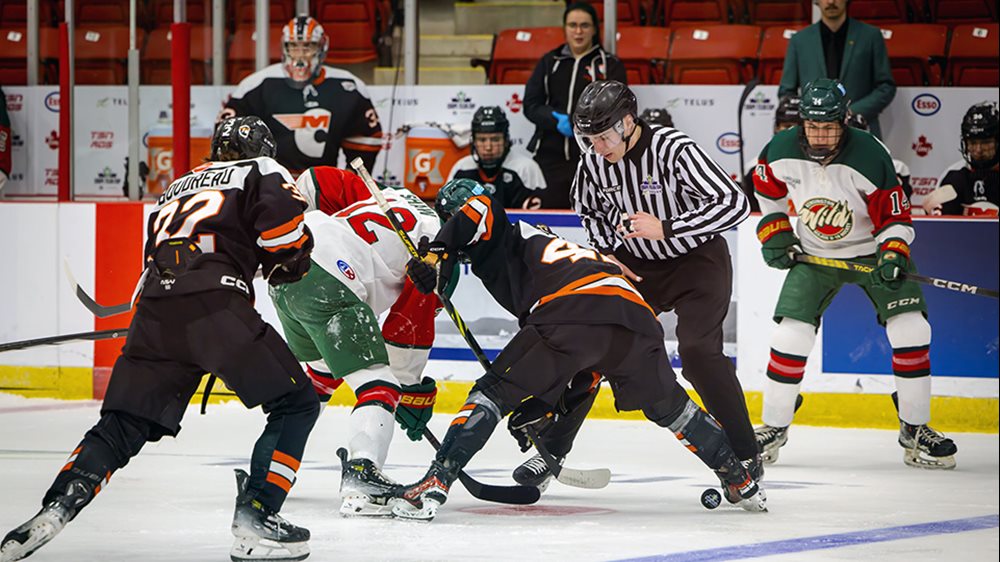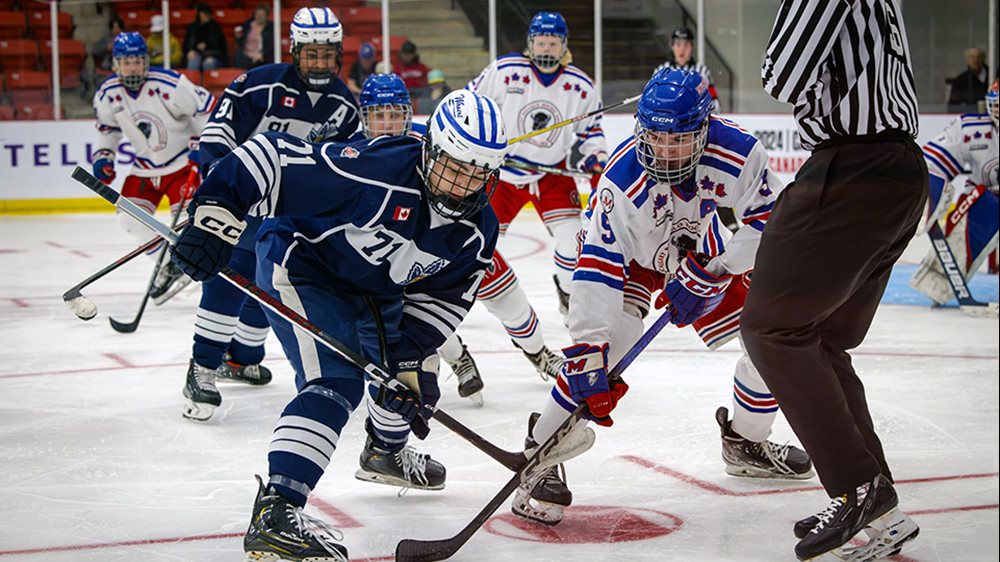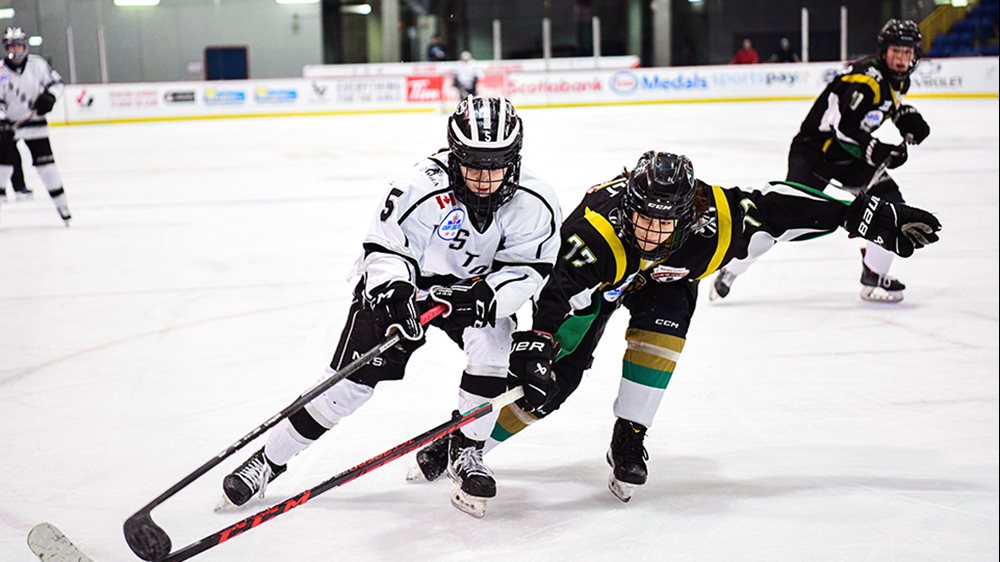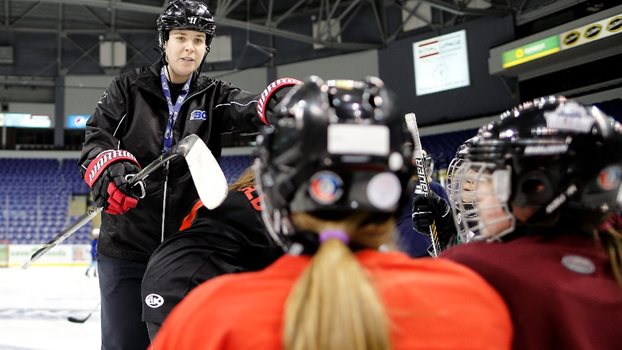
A future behind the bench
Hockey Canada and its development programs are helping women earn their coaching certification and give the next generation leaders to look up to
Hockey Canada is a leader in the game, and the organization is stepping up by providing opportunities for more women to get involved.
Through initiatives like Pond to Podium , We Are Coaches and the Women Master Coach Developer program, Hockey Canada is putting a focus on coach certification and getting more women behind the bench.
“If we want the game to grow, we need women involved. If we want the game to continue to be welcoming and have a positive environment, we need women,” says Teal Gove, manager of hockey development with Hockey Canada. “Having women as coaches increases the likelihood that girls will continue to play and then also get involved in leadership positions, which just makes the game better at all levels.”
That’s where a program like We Are Coaches is important. It was designed to increase the number of women coaching across the country. The clinics – taught by women, for women – help build infrastructure to support and sustain women's participation in hockey by removing barriers to coaching education.
“Sometimes it's pretty intimidating going into a room full of male coaches to get coaching certification, and many [women] may hesitate because of that,” says Gina Kingsbury, director of women’s national teams. “So, we have to make sure we break down those barriers, make it as accessible as possible, and, not only to grow our female presence and provide growth to ensure that we have large numbers, but also, there's a lot of knowledge in these female leaders.”
The women leading the We Are Coaches clinics are products of the Women Master Coach Developer program, which was launched in 2019. Delegates are selected for the program, and they must complete online modules and in-person sessions, as well as collaborate with their Member to deliver a We Are Coaches program in their province or territory in order to receive their certification.
“You can’t be what you can’t see. If women don’t see other women coaching, they’re not going to coach,” says Gove. “It is important that girls have role models that they can drive to be, and seeing women in leadership positions is key to that.”
Over the next year, with financial support from the Hockey Canada Foundation, more than 40 We Are Coaches clinics will be held across Canada, bringing hundreds of future coaches into the game.
That list includes a number of university players; every single student-athlete competing in women’s hockey across U SPORTS was offered NCCP Coach 1 and Coach 2 training through We Are Coaches.
“When Hockey Canada offered the opportunity, it was huge for our players,” says Caroline Ouellette, a four-time Olympic gold medallist and member of the coaching staff at Concordia University, which had 18 current players and eight alumna register. “Many saw the value of getting their coaching certification. We know that many of them will become the coaches of tomorrow.”
The program isn’t just about developing the tactical skills needed to coach. It’s far more than that. The women also learn about leadership skills.
“Coaching is a collaboration, and you want to work closely with the players and get involved in how they are doing and feeling,” Ouellette says. “[The We Are Coaches participants] realize that there is so much to cover in coaching; you never take decisions that are personal towards a player, you do what will help the team perform the best, and I think they realize it is harder than it looks.”
In her role as the head of the women’s program at Hockey Canada, Kingsbury has seen the benefits of these programs firsthand. The more women at the highest levels that go through the training, the better the chances they stay in the game.
“From a national team perspective, it provides a lot of opportunity for our athletes in their transition. A lot of them are taking these courses, or they're taking these opportunities to enhance their second career,” she says. “They're already thinking ahead of when they are done playing; they still want to be a part of this game and want to be a part of growing this game. These programs are allowing our athletes and staff to be able to continue to grow and think of the possibility of transitioning into the game in a different role, which I think it's huge.”
Inspiring future generations comes by showing young girls that they can see themselves in their role models, on and off the ice. As the push for a sustainable professional league is led by some of the best women in the game, Hockey Canada is leading the way in developing leaders behind the bench.
“Hockey Canada is world-leading in the game of hockey and certainly world-leading in the game of women’s hockey. Not only are we part of the movement, but we are now leading that movement,” says Kingsbury. “I think Hockey Canada sees that, values that and certainly demonstrates that with our initiatives and our focus through these programs. Our overall goal is to get women into those [leadership] roles.”
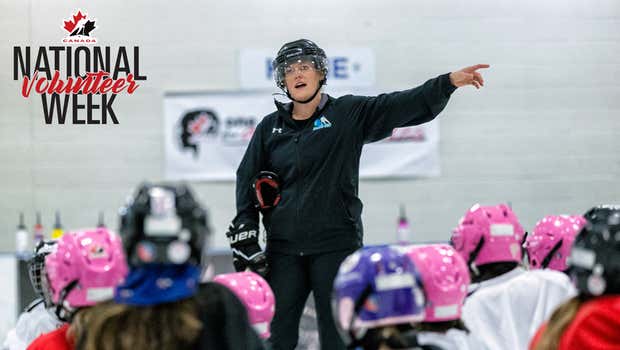
Making an impact in the North
A game-changer in women’s hockey, Kaylee Grant tirelessly gives her time across the territories, volunteering to ensure opportunities exist for women and girls
The first thing Kaylee Grant did when she moved to Yellowknife was find a hockey team.
The operating engineer took a one-year term to gain experience in her industry. Twelve years later, she’s still in the Northwest Territories and hockey has been a reason why she calls it home.
“You gravitate to what you know, and I knew sports,” Grant says. “When you join a sport, you instantly have 17 friends and a group where you feel accepted through a common goal and interest. When I moved to the North, I didn’t know how else to meet friends, so I went to the rink right away.”
Grant grew up around the rink in Antigonish, Nova Scotia. The community was also a hockey hotbed, supporting its Junior A, Junior B and university teams. Being around that passion and community made hockey an important part of her life.
“Playing hockey is what we did,” Grant says. “The community rallied behind our teams and the rinks were full, the atmosphere was great, and hockey was so prominent.”
She played minor hockey in Nova Scotia before moving to Newfoundland and Labrador to play at Memorial University. At 23 years old, she made the move to Yellowknife and knew she would find her community inside a rink.
“I find that the easiest thing to do when you come to a new place to meet people is through sport,” she says. “With joining a hockey team, I was already creating a group of people that were like-minded in interests and similar age. Plus, there are so many opportunities in the North to grow as coaches, players and mentors that have been so helpful.”
Grant’s love for the game wasn’t just as a player—she expanded her knowledge
by getting into coaching while in Nova Scotia. She started as an off-ice
coordinator with the Antigonish Bulldogs women’s under-18 team.
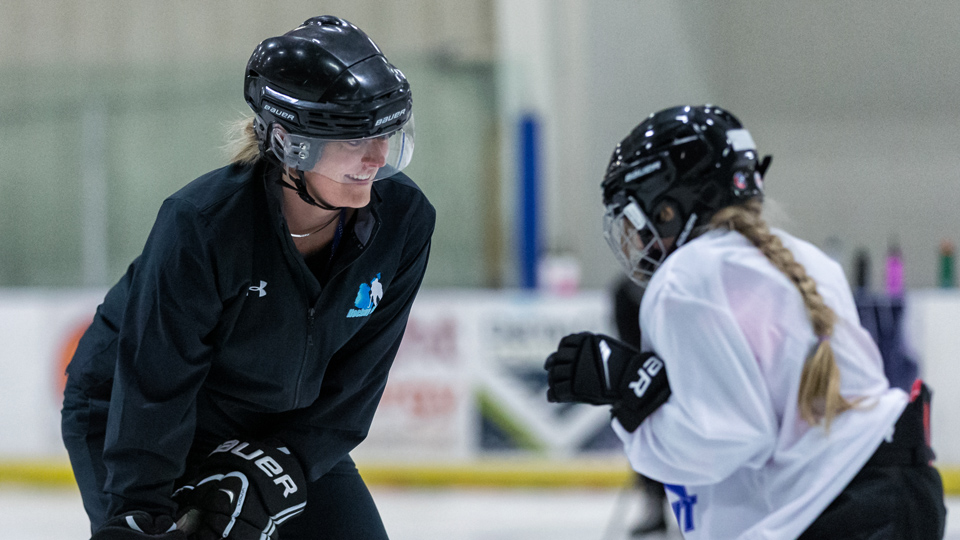
She did her Coach Development 1 training before getting her High Performance 1 training and evaluation certification. She continued to pursue additional coaching certification and training over the years to educate herself and give back to her community.
“I think seeing the female game continuously grow and develop that keeps me interested,” Grant says. “I love to see the progress in my players. I love seeing these players grow and adapt as individuals. Seeing them get involved in coaching is the coolest part.”
Her coaching philosophy is to develop a player’s passion for the game, be a role model and create an environment that is positive for women and girls.
Coaching and mentoring young girls are important to Grant, and she saw that path was through high-level opportunities, particularly by becoming a facilitator to drive more players into the coaching route. She has been working with Hockey North and the Hockey Canada Women Master Coach Developer program, which is focused on removing barriers to coaching education for women.
“Kaylee has volunteered at pretty much every level and she’s getting more involved with training coaches and being a clinician, which is an amazing progression for her,” says Kyle Kugler, executive director of Hockey North and a close friend of Grant. “She’s a great ambassador for hockey by giving back to other coaches through her experiences and helping with their development.”
Through being a volunteer coach, Grant has been able to experience some highlights with her teams, including as head coach for the Arctic Winter Games and Canada Winter Games, and as an assistant coach for Team North at the National Aboriginal Hockey Championship.
“Hockey North has given me so many opportunities and having that support has impacted me as a coach,” Grant says. “I enjoyed every year with those territorial teams and those experiences are a very big reason why I stay here – the coaching opportunities and knowing that we continually have room to grow.”
Another event that Grant was a key volunteer for was the inaugural One For All festival held in Yellowknife in February. It was a four-day event for women and girls from across the N.W.T. and Nunavut that included goaltending clinics, on-ice scrimmages and other off-ice experiences. The event was launched in partnership with Hockey Canada and Hockey North to celebrate the sport and grow grassroots hockey in the North.
“Kaylee is one of our co-leads in the North, and when we set out to deliver this programming in Yellowknife, it was a no-brainer that she would be involved. And typical Kaylee, she just runs with a task and completely owns it,” says Katie Greenway, manager of women’s and girls’ hockey with Hockey Canada. “To have champions like Kaylee that dedicate themselves to their community and sport is so important.”
Giving back through coaching is just what Grant does—it’s like a hobby for her and she does it for others and to see more women in the sport, not for what it could bring to her.
“I’ve known Kaylee for a few years now and she has so much on her plate, but she never says no,” Greenway says. “She doesn’t do it for the accolades, but out of the goodness of her heart with a smile on her face. She’s fantastic and is really impacting everyone that she comes across.”
Grant’s impact on hockey in the North has been felt by many of the girls she has coached, mentored and played with over the past 12 years, but it’s the bigger picture that is most important to her.
“I’m not going to say that myself, individually, has drastically impacted female hockey in the North. I think I am a very small portion of what’s been going on in the North in the last 10 years,” Grant says. “I would like to think that I have helped develop more female coaches and I’ve been a good role model. I think if I have impacted hockey in the North, its pushing players to want to coach a little bit, but it’s a collective—everyone has left their mark on the female game.”
For Kugler, as the lone administrator for Hockey North, having volunteers like Kaylee is so critical to the work and development of hockey players.
“I think volunteers are essential for the delivery of anything in small communities in the North,” he says. “[Kaylee] takes on more than we even realize. Coaches have a huge influence on teams and athletes and she’s a positive role model and advocate for female hockey. She’s selfless with her time and she’s just an awesome person.”
Interested in becoming a coach? Visit HockeyCanada.ca/Coaching, or contact your local hockey association or Hockey Canada Member for more information.
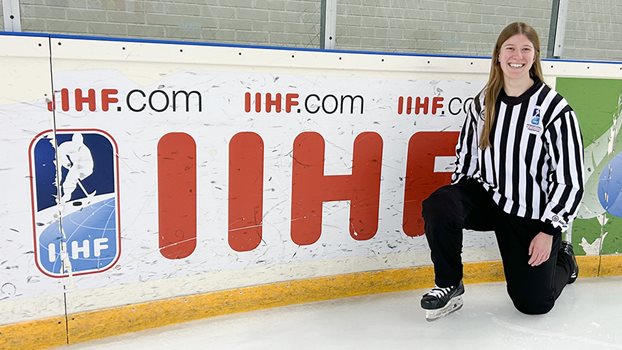
Life between the lines
A late starter in hockey, Ali Beres didn’t let that stand in her way of reaching her goals and setting herself up for a successful second act as one of Canada’s top young linespersons
Once Ali Beres sets her sights on a goal, she will most likely accomplish it.
Switching from ringette to hockey to transitioning to officiating after her U SPORTS hockey career and embracing other athletic pursuits, Beres’ determination keeps her chasing new goals.
“I’m lucky to have athletics be a huge part of my life growing up,” says the 27-year-old. “I feel very fortunate to be involved in sports and at the level that I am with the opportunities I’ve had.”
Growing up in Lions Bay, B.C., about 30 minutes from Vancouver, Beres and her sister Maegan played ringette as there were no girls’ hockey programs. When she was 13 years old, she switched to hockey, intending to play at the university level.
Transitioning from ringette to hockey required Beres to learn new skills, including stickhandling and shooting the puck.
“When I switched from playing ringette to hockey, there was a skill and knowledge gap,” she says.
A coach told her that she was behind her peers at that age and probably shouldn’t bother, but her drive led her to participate in skill development camps and shooting 200 pucks in the family garage so she would be able to play.
“I remember that conversation with this coach when I was 14 years old. That moment shaped me and who I am today,” says Beres. “It taught me that if you want something badly and you put in the effort and hard work and you have the determination, you can still achieve your goals. Most importantly, to never give up on something you love.”
That love and passion led her on a successful hockey path, including playing for B.C. at the 2013 National Women’s Under-18 Championship and varsity hockey at Western University in London, Ontario, where she won a U SPORTS national title in 2015, a silver medal at nationals and two Ontario University Athletics (OUA) championships.
As Beres finished her university career, she thought about what would come next. She knew she wanted to stay involved in the game and leaned on an aspect of the game she used to participate in – officiating.
“I wasn’t ready to just hang up the skates and call it quits after my U SPORTS career. The rink has been a part of my life since I was three,” she says. “As soon as the final game ended, it was so emotional. I knew after that I was going to have to get a job and that I wasn’t going to be playing anymore. I remembered that I loved officiating growing up.”
Beres decided she wanted to put on a new jersey, play on a new team and see where officiating could take her. After graduating, she got re-certified in Ontario.
“I just kept skating lots of games with so many different people and games as possible and learn as much as I could,” she says. “I saw so many people ahead of me in the program and saw all their accomplishments and telling my mentors that those are the assignments that I’d love to take on.”
Since transitioning to officiating, Beres has had the opportunity to participate in the Hockey Canada Officials Program of Excellence (OPOE), which is a performance pathway for officials to reach their high-level goals.
Since then, she has been a linesperson at some significant events, including the 2014 IIHF U18 Women’s World Championship (Division 1B) and the Professional Women’s Hockey League Battle on Bay Street game between Toronto and Montreal earlier this year.
“I’m grateful to have had so many opportunities through officiating,” says Beres. “What I love about officiating is that you’re still part of the game. It’s intense … there’s pressure on your shoulders and you’re still competing as an athlete. It is our job to make sure the game is played fair and safe.”
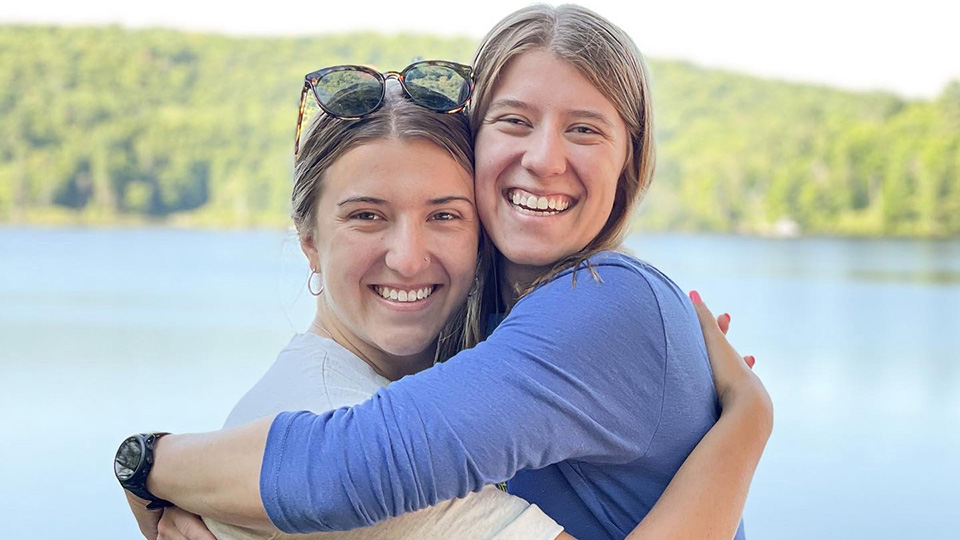
Beres wouldn’t be able to balance life as a solution engineer with a procurement company, officiating and competing in triathlons without the support system of her family, particularly Maegan.
“We are best friends and we’ve always been competitive,” she said. “We’ve always tried to push each other. Our parents instilled solid values in us. While we were competitive, we also supported each other, and knowing that each other’s successes doesn’t mean the other isn’t successful.”
Like Ali, Maegan had hockey aspirations that she was determined to achieve. She played NCAA hockey for Boston College and with the Toronto Six of the Premier Hockey Federation, and won a silver medal with Canada at the 2017 IIHF U18 Women’s World Championship.
“We’ve always been super close, and she turned into such a big role model for me and being the younger sister, you kind of idolize your big sister,” says Maegan. “When I had a lot of success in my hockey career, she was one of the closest people to me and I always leaned on her for advice and support.”
Being athletically fit is important to stay at high-level hockey pace, but it also helps Ali stay mentally fresh and healthy and able to balance her professional career as well. Outside of officiating, Ali competes in triathlons, a sport she quickly fell in love with.
“The players are giving 100 per cent, so we need to be able to match that and give it our all too. I was a little bored of the gym, so I wanted to push my athletic comfort zone, so I signed up for an Ironman 70.3 (also known as a half-Ironman) and I got really addicted,” Ali says.
As Ali continues to set goals for herself – including officiating at the Olympics, her sister knows her drive is what will get her there.
“Once she has a glimpse of that goal, I just know she will do everything in her power to get there and accomplish it,” says Maegan. “I am very proud of her and what she’s accomplished and seeing her transition from her playing career in hockey into officiating. I’m excited to see where this journey takes her.”
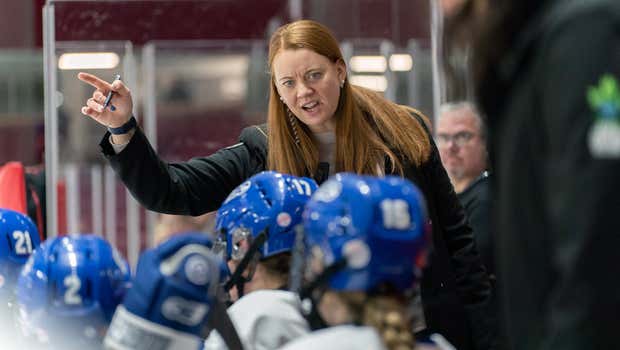
From stage lights to hockey heights
After transitioning from improv acting to coaching high-level hockey, Whitney Juszkiewicz continues to flourish behind the bench
Before the gold medal, the accolades and the countless hours behind the bench coaching high-level hockey, Whitney Juszkiewicz was an improv actor in Vancouver.
“I was on stage every Sunday throwing on an attitude, throwing on an accent, throwing on a persona and going for it,” recalls Juszkiewicz.
Born in Alberta, Juszkiewicz grew up in Edmonton and was deeply involved in hockey, attending St. Francis Xavier High Performance Hockey Academy before enrolling at the University of Saskatchewan, where she studied liberal arts and was a member of the Huskies hockey team. She then studied live performance at Red Deer Polytechnic before embarking on a career in live performance.
“I spent almost eight years in the film, television and theatre industry and I did a lot of stuff in Red Deer,” Juszkiewicz says. “My friends and I then started a theatre company (BullSkit) that specialized in improv and sketch comedy like Saturday Night Live or Second City.”
By 2012, Juszkiewicz was living in Vancouver, running her theatre company, performing improv and providing hockey lessons to kids. It was after one of those lessons that a parent asked if she had ever considered coaching hockey. After thinking it over, Juszkiewicz decided to go for it and soon found herself behind the bench of a Vancouver-area U11 boys’ team.
“I must have done a pretty good job because in my first year I won rookie coach of the year,” she says.
A little more than a decade later, Juszkiewicz is now a respected high-performance hockey coach, having been behind the bench of numerous high-level boys’ and girls’ teams throughout Greater Vancouver, and the owner of Fire and Ice Hockey Development. She has held also held various coaching-related positions with BC Hockey, briefly served as the executive director of the Langley Minor Hockey Association, became a certified Hockey Canada Skills Coach and worked as a female coach mentor with the NHL Coaches’ Association during that time.
“I put the coaching hat on and I haven’t looked back,” says Juszkiewicz, who is also a coach in the B.C. provincial program, an associate coach with a U18 Prep team at the Delta Hockey Academy and head coach of a female U15 AAA team in the Pacific Coast Amateur Hockey Association.
In February, as an assistant coach, Juszkiewicz helped Team BC win its first-ever gold medal in women’s hockey at the 2023 Canada Winter Games.
“It was a privilege to work with those young women, some of whom went on to win gold at the women’s under-18 world championship,” she says. “It was just an unbelievable experience and it will definitely be one of my all-time favourite memories as a coach.”
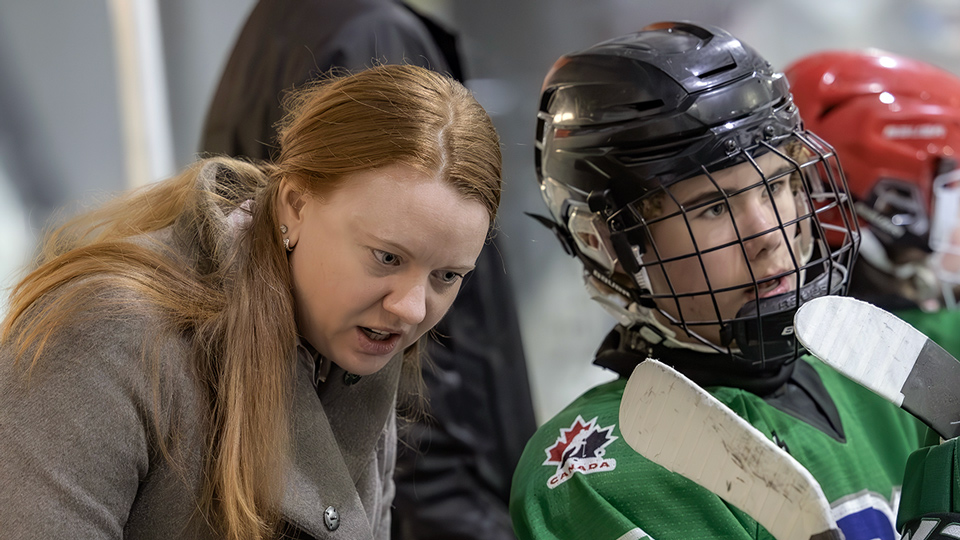
Same skills, different role
Although Juszkiewicz is no longer performing improv on weekends, she has found that many of the skills she developed as an actor have transferred over into the coaching world.
“[Coaching] hockey is reading the room and understanding that this may not be the right time to really drill in the negatives and that everyone needs a little bit of a bump, they need value,” she says.
In the acting world, Juszkiewicz says, a strong emphasis is placed on organization, understanding objectives and having everyone buy into their roles to ensure everything is successful, just like it is in hockey.
“You have the best shows when everybody understands the objective and I find the coaching world is very much like that,” says Juszkiewicz, who continues to dabble in acting, having appeared as an extra in Mighty Ducks: Game Changers. “Everyone's got a job, everyone's got a special talent that they're bringing; there is a reason why they're there and if we can just dig into those specialties and create a nice, inclusive, safe environment, we're going to have a great time.”
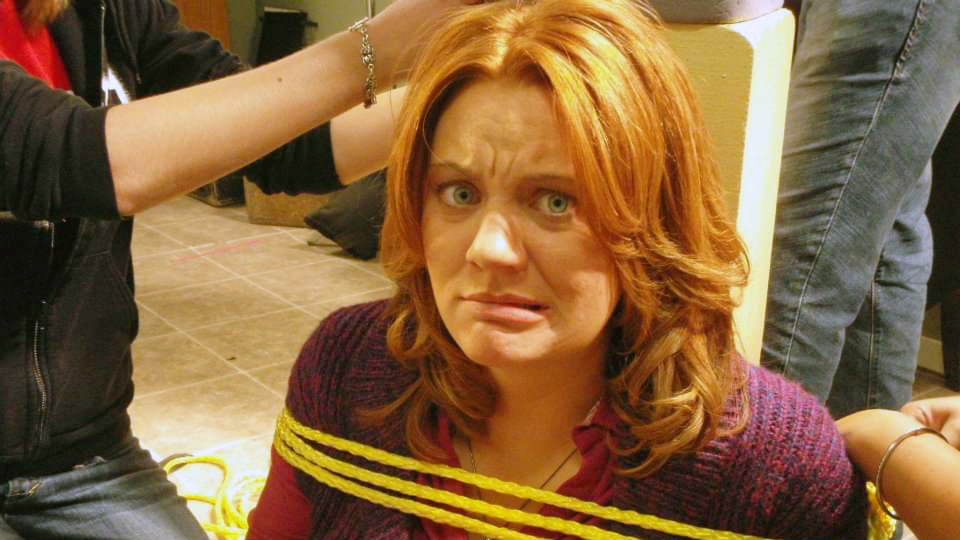
Learning and growing
Over the last four years, Juszkiewicz has been participating in Hockey Canada's Women Master Coach Developer (WMCD) program, an elite initiative that is providing 38 high-performance women’s hockey coaches with the skills they need to deliver clinics and train future facilitators and evaluators as part of an effort to increase the number of women-led coaching programs nationwide.
“It's been able to give me that extra credibility, that extra training and that extra guidance that I find I am now using with all coaches that either I work with or work for me,” Juszkiewicz says about the program, which she is set to complete later this year. “It’s been a wonderful opportunity to understand how to work with people how to train them, how are you going to create a learning environment as opposed to more of a lecture and just listen to what I have to say environment.”
WMCD participants are nominated by Hockey Canada Members and must have completed several certification and training courses to even be considered. One of the biggest benefits of being in WMCD has been connecting with 37 other highly talented women, says Juszkiewicz.
“I am one of the only women in my province in the program. If I didn't have the ability to connect with other girls in other provinces, I would feel pretty lonely and like I was on my own little island. So, I think the best part is that you are getting some of the top minds across the country in terms of female leadership and female hockey getting together and that is very empowering,” she explains. “It's extremely empowering to know that you're not by yourself.”
Juszkiewicz’s hard work and continuous dedication to her craft over the years has paid dividends. In 2021, she was named BFL Female Coach of the Year for British Columbia in the Community category, and in 2022 she was awarded the BC Hockey Development Award for coaching. She says her drive for continuous learning and growth is fueled by her desire to continue coaching in the game she loves.
“If you don't continue pushing yourself to learn and develop, you get stagnant and ultimately you get left behind.”
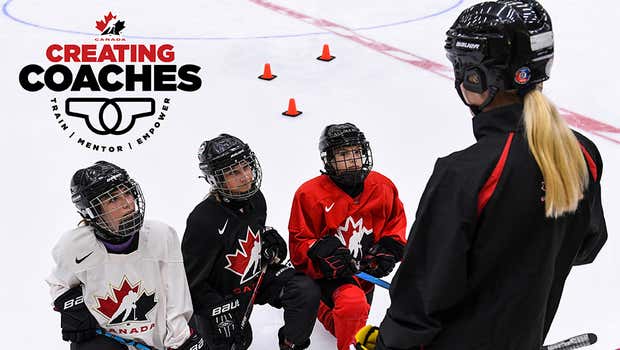
Eight student-athletes to participate in Creating Coaches program
Creating Coaches’ third cohort runs until end of 2024-25 season
CALGARY, AB – Hockey Canada and U SPORTS have announced the eight student-athletes who have been selected to join Creating Coaches, a program designed to increase the number of women coaching hockey in Canada, as part of its third cohort which will run during the 2023-24 and 2024-25 seasons.
Launched in 2021 through a partnership between Hockey Canada, U SPORTS and the Hockey Canada Foundation, Creating Coaches provides training and mentorship to current U SPORTS student-athletes who are concurrently looking to begin their coaching careers. Participants in the program serve as an assistant coach with a U13, U15 or U18 girls’ hockey team for the duration of the two seasons and receive coach education, professional development opportunities and an honorarium.
This year’s cohort includes student-athletes from eight U SPORTS women’s hockey programs across three of its conferences:
• Alexis Anonech (York University, OUA)
• Emmy Fecteau (Concordia University, RSEQ)
• Lyndsey Janes (Mount Royal University, CW)
• Madison Laberge (Nipissing University, OUA)
• Isabelle Lajoie (University of Alberta, CW)
• Sophie Lalor (University of Saskatchewan, CW)
• Sarah-Maude Lavoie (McGill University, RSEQ)
• Chihiro Suzuki (Guelph University, OUA)
“We are thrilled to welcome these eight accomplished student-athletes to Creating Coaches and look forward to working with them during the next two seasons,” said Marin Hickox, Hockey Canada’s vice-president of women and girls’ hockey. “Creating Coaches is an important program to support and develop hockey’s next generation of leaders and we are grateful to the U SPORTS coaches who nominated this talented group.
“Girls who have been coached by a woman are more likely to transition into a coaching role at the end of their playing careers, and it is our intention that this program will positively influence the recruitment and retention of girls and women in leadership roles in the sport.”
Since its inception, Creating Coaches has included student-athletes from 16 U SPORTS women’s hockey programs and all four of its conferences.
“The eight student-athletes selected to join Creating Coaches are tremendous ambassadors for hockey and university sport in Canada,” said Lisette Johnson-Stapley, chief sport officer at U SPORTS. “We have already seen the positive impact that this program has had inspiring young girls in communities across the country and we are excited for Alexis, Chihiro, Emmy, Isabelle, Lyndsey, Madison, Sarah-Maude and Sophie to begin their coaching careers while continuing to represent their universities with pride as student-athletes.”
The Creating Coaches selection committee includes representation from Hockey Canada, U SPORTS, Hockey Canada’s Members and the Hockey Canada Foundation Board of Directors.
During National Coaches Week, Hockey Canada is celebrating the positive impact that coaches have on athletes in communities from coast to coast to coast, with #ThanksCoach resources and features shared here.
To learn more about Hockey Canada, please visit HockeyCanada.ca, or follow along through social media on Facebook, X and Instagram.
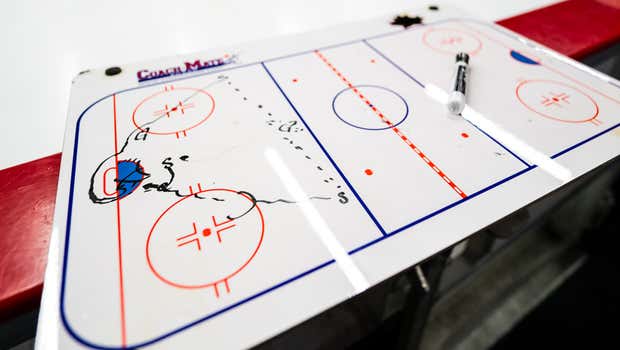
Resources for Canadian coaches
From upcoming training opportunities to ideas for skills and drills, Hockey Canada has a variety of resources available for coaches of all levels across the country
Coaches are the backbone of the hockey community. Whether you are a regular behind the bench or it’s your first season as a coach, Hockey Canada has a variety of resources available to help you succeed on your coaching journey.
How do I start my coaching journey?
If you want to get started coaching, make Hockey Canada’s National Coach Certification Program (NCCP) your first stop. This program enables coaches to build their coaching tools and knowledge of the game to work effectively with their players. Hockey Canada offers six coaching clinics and five instructional stream areas of focus.
Those looking to be trained to coach in the Community Sport stream can participate in Coach 1 — Intro to Coach or Coach 2 — Coach Level. NCCP certification is not required at either of these levels; a coach will remain trained indefinitely after completing these streams. Register for a coaching clinic or visit your Member website for more information.
Respect in Sport
The Respect in Sport Activity Leader/Coach program is an engaging and easy-to-use online training course that helps hockey coaches and youth leaders recognize, understand and respond to issues of bullying, abuse, harassment and discrimination. The course also aims to build a holistic culture of respect within the sports community and provide fundamental training tools to enable all coaches to become even better role models for the young athletes in their care.
In Canadian hockey, more than 230,000 coaches are certified by the Respect Group Inc.
Skills and drills
The Hockey Canada Network gives coaches and players the tools to succeed with drills, skills, videos, practice plans and articles on their tablet or phone. There are over 1,500 drills and more than 100 lesson plans available on the app, with more added throughout the season.
Looking for more drill inspiration? Hockey Canada will frequently post skill videos on its social channels that can be incorporated into practice plans. Search the hashtag #HCSkillsCoach and #HCGoalieCoach on X (formerly known as Twitter), Facebook and Instagram to find more drill videos to utilize on the ice.
Drill Hub is another resource available to find skills and drills for players. It is a free resource for coaches to access hundreds of drills and videos. There are also pre-made practice plans available to download, along with templates for game rosters, player stats, scouting reports and more.
Women in coaching
We Are Coaches
As a free, women-only coach program, We Are Coaches was designed to increase the number of trained women coaches in Canada in order to provide mentors and role models for young participants. The program aims to build infrastructure to support and sustain the participation of girls and women in hockey in Canada, develop women role models and leaders within the hockey community and remove barriers to coaching education for women.
Women Master Coach Developer
Launched in 2019, the Women Master Coach Developer (WMCD) program introduces more hockey coaching programs led by women. The program has equipped 38 coach leaders to not only deliver coach clinics, but also train future facilitators and evaluators in each Member.
To participate in the program, delegates can be nominated by their Member each season. Delegates are required to complete multiple trainings and certifications in the program, and upon successful completion, they will take a leadership role to optimize the delivery of the We Are Coaches program and support women coaches within their communities.
Creating Coaches
In 2021, the Hockey Canada Foundation partnered with U SPORTS to launch Creating Coaches, a program designed to increase the number of women in coaching positions in Canada. This two-year mentorship program places a focus on training, mentoring and empowering women behind the bench.
Candidates for the program are nominated by their U SPORTS coaches to participate in Creating Coaches.
How do I get further coaching support?
Are you looking for more support? Do you have a question about coaching in your community? Hockey Canada and its Members have coaching resources and helpful staff available to help you on your coaching journey.
Click here to find the coaching contact information for your Member.
Do you have more questions about coaching? Visit these Frequently Asked Questions pages to learn more about the following topics:
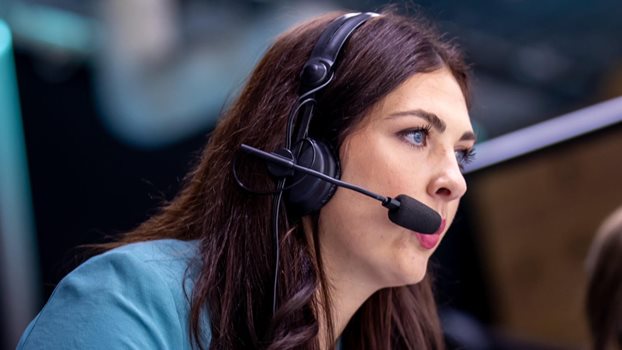
In my own words: Kenzie Lalonde
The Ottawa native reflects on her journey, from growing up playing hockey to getting her start in broadcasting and memorable moments wearing the headset for TSN
I'm someone who says yes to things. I go back to this quote I came across in high school: you get in life what you have the courage to ask for. Whether it was lacing up my first pair of skates, moving to the Maritimes or putting on a headset for the first time, I found the courage to say yes to opportunities that scare me.
I grew up in a household of hockey fans. Every morning before school, I
would eat my bowl of Froot Loops and watch SportsCentre on TSN, amazed that
people could talk sports for a living. My father and my older brother both
played hockey, so it was natural for me to follow in their footsteps. I
initially played boys’ hockey, switching to girls’ hockey in U11. That
accelerated my passion for the game because I walked into a dressing room
and immediately met 23 girls that loved the same sport I did. To this day,
I’m still close with some of my minor hockey teammates.
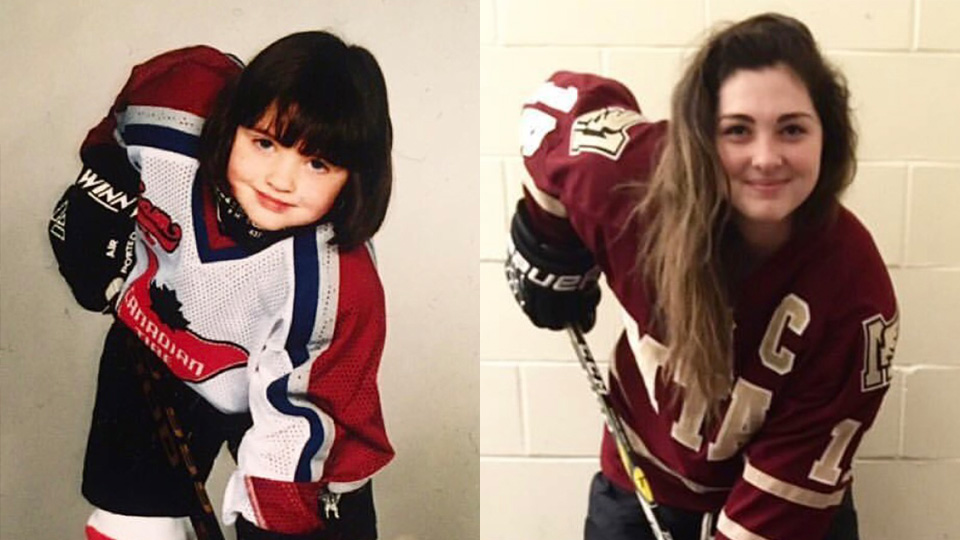
In Grade 12, I was playing for the Ottawa Junior Senators. My teammates were committing to colleges, but I didn’t know what I wanted to do. I was at a crossroad. I wanted more balance between hockey, school and life. My student teacher at the time, Andrea Leacock, recommended I check out her alma mater, Mount Allison University. From the moment I met the coach, toured the town and met a few of the players, it felt right. I had never been to the Maritimes before that trip, but I chose to call Sackville, New Brunswick home for the next five years, playing hockey, studying business and discovering television along the way.
I knew I wanted to turn my hobby into a career in my fifth year of
university when I saw first-hand the excitement an interview could bring to
a young athlete. I had a chance to volunteer at a local cable channel,
Eastlink Community TV. It was my first time filming a story, we were
covering a girls’ junior high school basketball championship. I went up to
the MVP and asked her the good old question, “How does it feel to have
won?” The look of sheer terror, happiness and anticipation all mixed into
one emotion, surrounded by her giggling teammates, was priceless. It was in
that moment I realized I was seeing myself, and what it would have been
like if someone came up to me and my teammates wanting to interview us
after a win, recognizing our accomplishment. I knew from that moment on, I
wanted to provide women athletes an opportunity to have their
accomplishments honoured and voices heard.
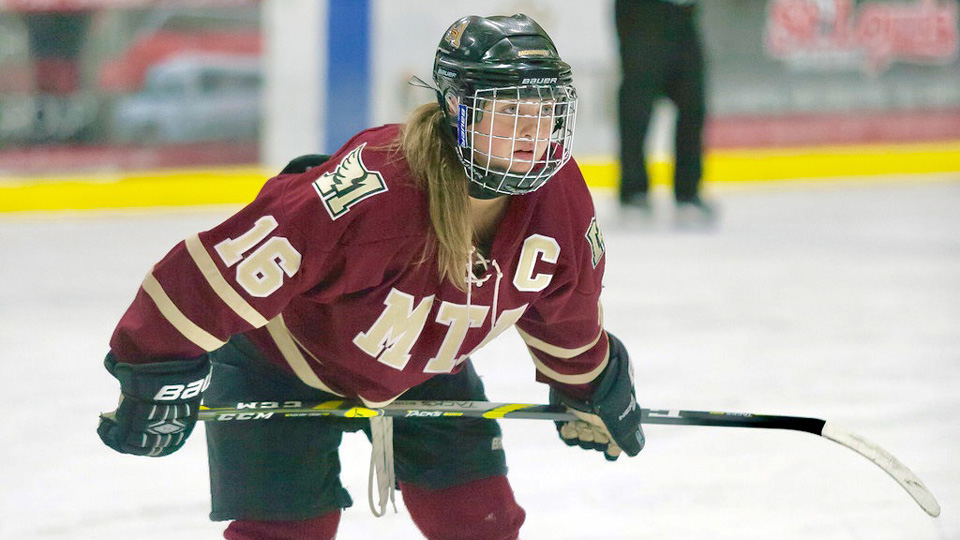
When I joined Eastlink Community TV full-time, it was my manager, Brett Smith, who encouraged me to try play-by-play. For the first few weeks, I got my feet wet—I didn’t know much about live broadcasting. I learned quickly that in television, you learn by doing; it’s all about the reps. I knew I would either sink or swim, and I swam. Within two months, I was hosting the Halifax Mooseheads broadcasts, and within three months, I was calling hockey. Five months later, I was calling soccer, basketball, volleyball, even ringette. I began hosting a weekly community show, filling in as a camera operator and producing stories. I tried it all and loved it. I gained an appreciation for grassroots sports and began to feel a responsibility every time I called a game. A responsibility to pronounce names correctly, introduce viewers to the person behind the athlete and, most importantly, give an athlete their moment.
The night before I called my first QMJHL game on television, I was nervous.
It was going to be the first time a woman provided play-by-play commentary
for the league on television. People often ask me what that was like. Well,
I felt as though if I did great, I did the job, but if I failed, I’d hinder
future opportunities for women. The night before the game between the
Halifax Mooseheads and Charlottetown Islanders, I got a phone call. It was
Leah Hextall, someone who knows first-hand, on a much larger scale, the
feeling of carrying the weight of your gender on your shoulders. She gave
me some great advice—trust yourself, because you’ve earned this, and be
present. Two tips I still remind myself.
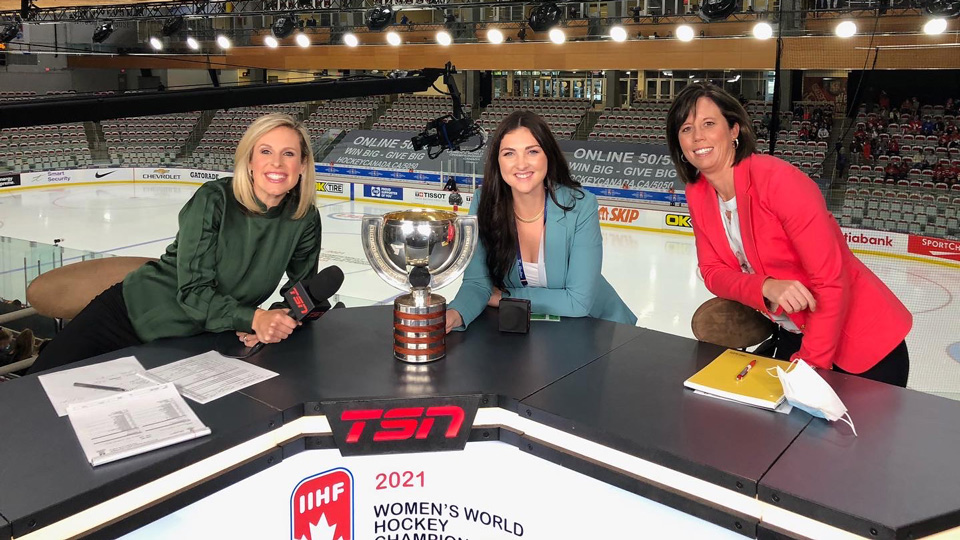
It wasn’t too long after that, I got another phone call came from TSN for the 2021 IIHF Women’s World Championship in Calgary. This was the first time Group B games were going to be televised, so they were looking for a second commentary team. I had a few weeks to prepare, get comfortable with international women’s hockey and European names, and go into the Calgary bubble to work with the network that inspired this Froot Loops-loving, sport-obsessed nine-year-old.
Since then, I have had the opportunity to be a part of some incredible sporting events. Reporting on women’s hockey at the 2022 Olympic Winter Games was very special. The event was so unique, I’ll never forget that experience in Beijing and how it shaped me as the reporter I am today in Montreal. The most recent World Juniors in Halifax was very memorable because I returned to the rink where my television career started, in the same role, as a rink-side reporter, on the same ice. The IIHF U18 Women’s World Championship in Wisconsin stands out for me because for the first time, the U18 women were receiving televised coverage and I was a part of it in the booth. Exposure of the women’s game is vital for growth, and I am proud to work with fellow team members that want to even the playing field.
😂🙏🏼 what a week https://t.co/qVlAMdy84g
— Kenzie Lalonde (@KenzieTSN) September 7, 2022
And that’s why I love television—it’s a team sport. The crew and staff behind the scenes of a broadcast is where the magic is made. We all have to rely on each other; a skill I developed in hockey. I learned how to trust my teammates, who are now a colour commentator, a camera operator or the producer, who is like a coach. I know what it’s like to be a rookie, to value other people’s sacrifices and, most importantly, how to fight when the odds are against you.
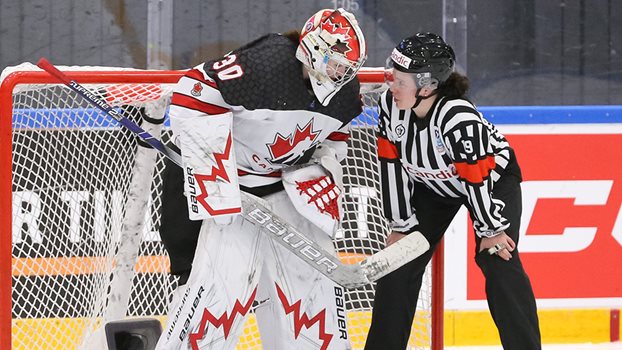
Berezowski’s officiating dream comes true with newborn by her side
Three months after giving birth to her second daughter, Jenn Berezowski was back on the ice refereeing at the IIHF U18 Women’s World Championship
Jenn Berezowski always wanted the opportunity to officiate at a top-level IIHF tournament.
There was just one small dilemma. Berezowski had recently given birth to her second daughter, Hannah.
“When I got the phone call in October 2022 to do the U18 Women’s Worlds in January, I was about a month postpartum with my second daughter,” Berezowski recalls. “It was going to be tight with the timing, but I couldn’t say no.”
So, a month after Hannah was born, Berezowski resumed officiating games.
“I was back on the ice again and with my daughter attached to my hip,” she says.
When it came time to leave for Sweden, Berezowski, along with her mother
and baby Hannah, made the trip from their home in Trenton, Ont., across the
Atlantic. Meanwhile, her husband and their eldest daughter, three-year-old
Scarlett, remained at home and watched as Berezowski refereed three games,
including the gold medal game that saw Canada beat Sweden 10-0 to defend
its world title.
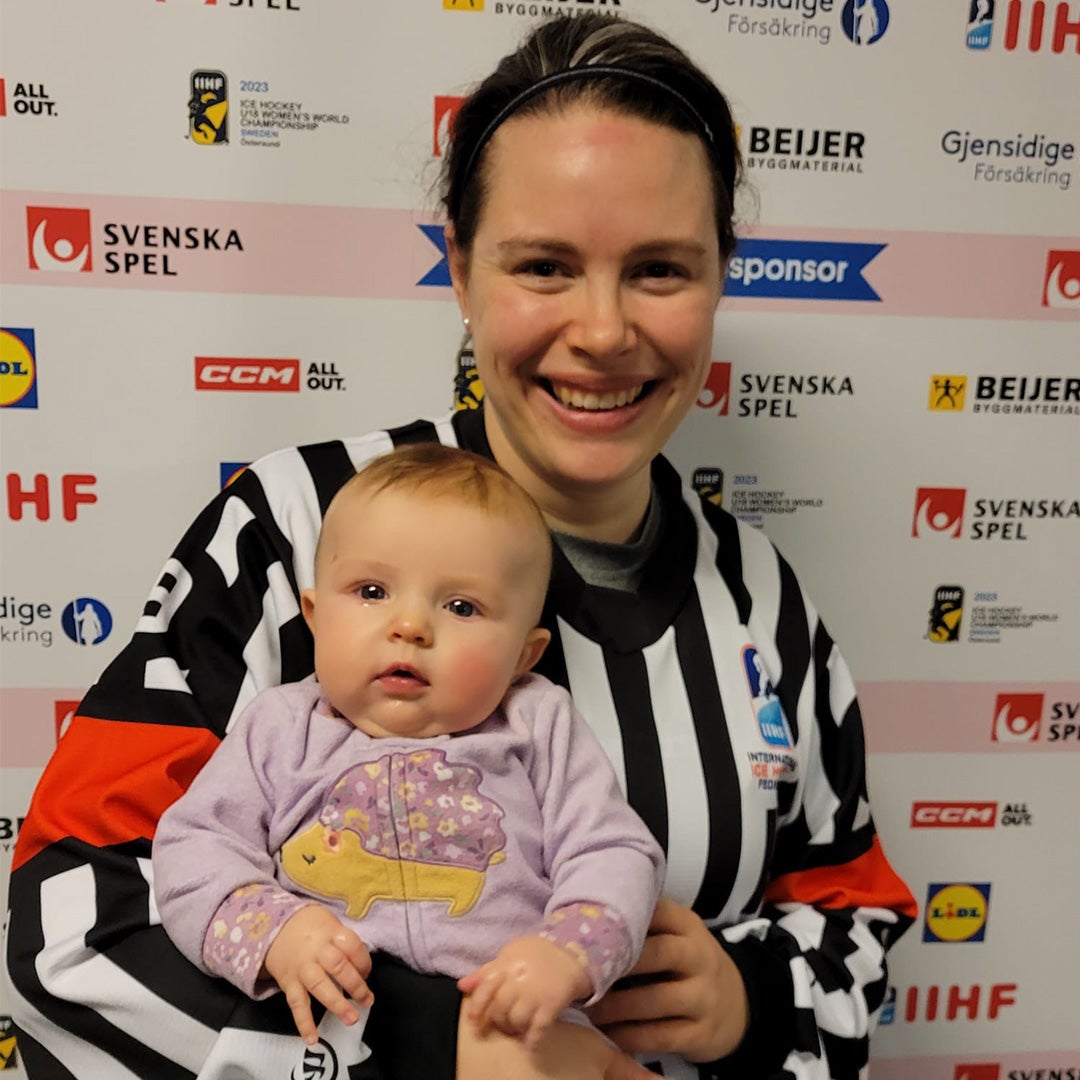
Whether it was at home or on the road, Berezowski credits friends, family and colleagues for supporting her and Hannah.
“Everyone has taken turns coming to the arena with me so that I can be away from home and continue to ref but also have her with me there so I can feed her and keep her healthy,” Berezowski says. “My colleagues have been extremely supportive, no one has blinked an eye about me feeding my baby in between periods or having a babysitter hanging around. In doing that, they are helping normalize this path locally, nationally and internationally.”
Since the U18 worlds in Sweden, Berezowski has returned to officiating various leagues across Ontario with her daughter by her side. This week, she is part of the crew working the U SPORTS Women’s Hockey Championship in Montreal.
With the added logistics of travelling with her baby, on top of being a
mother of two and a referee, Berezowski is also a chartered professional
accountant. She admits that the spring season is one of her busiest times
of the year, with provincial championships and playoffs happening at the
same time as the Canadian tax season.
“It’s all about the support I receive from everyone, including my bosses
who have been very generous with allowing me to have flexible hours,”
Berezowski says. “During the spring, tax season and championships come to a
peak, so it’s all about giving some and taking some and being one of the
hardest workers out there.”
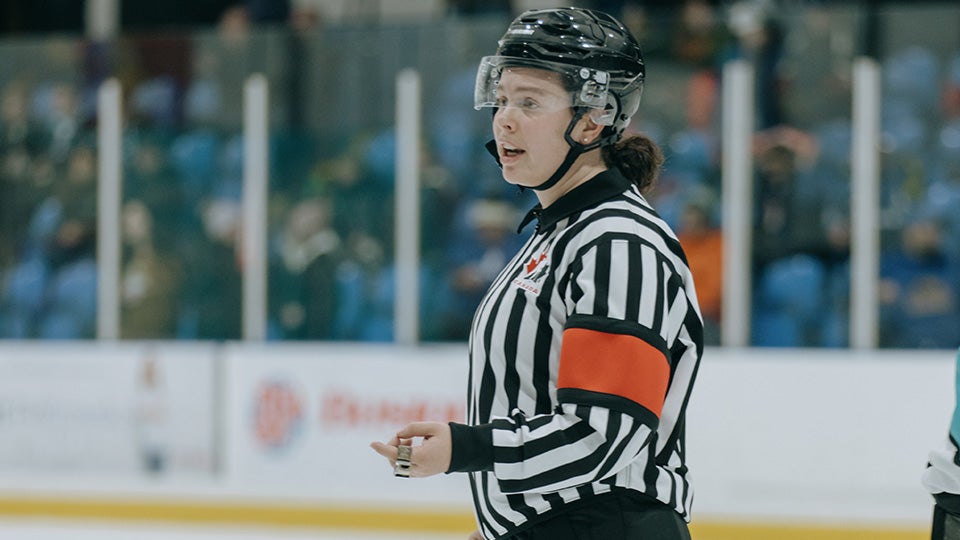
Normalizing newborns at the rink
Since donning the stripes when she was 16 years old, Berezowski says she has only once seen a mom with her newborn at the rink. However, she is optimistic that over time, it will be commonplace.
“We used to have to choose one of the two. I would’ve had to choose between continuing to do this or is it time to have a family,” Berezowski adds. “Now, people have opened their minds to the possibilities and you can do both. I’ve been lucky to be able to pursue everything.”
Berezowski is also in contact with the growing community of women officials. Whether it’s sharing experiences or bouncing thoughts and ideas off each other, the community continues to be very supportive. By sharing her story, Berezowski hopes to serve as a role model for other women, particularly new moms.
“I have a lot of colleagues that are young, and they haven’t started families yet, and through that online group, we’re transparent and showing that we’re in 2023, we can do this stuff if we want to, and I love that I can show that within my province and on the ice,” she says.
At the end of the day, Berezowski is encouraged by the support from the hockey community.
“It’s super rewarding to have a career, be an official on the ice and a mom, too,” she says. “Seeing people like Natalie Spooner and all she’s doing, we’re showing moms what is possible, and that we can do anything that we want to once we set our minds to it.”
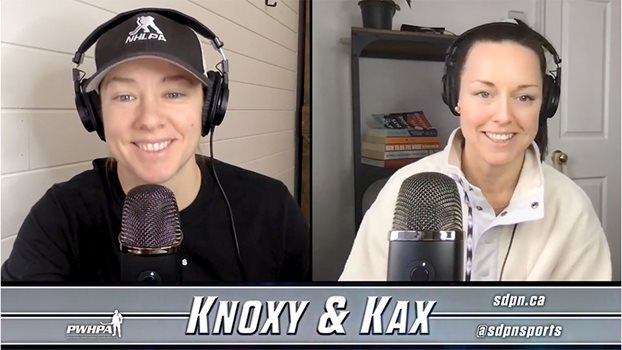
Knox’s podcast highlights influential voices
From between the pipes to behind the microphone, Liz Knox is advocating for representation and inspiring young fans and players by sharing the influential voices in women’s hockey
Seven years old, Knox watched the likes of Danielle Goyette, Cassie Campbell and Kim St. Pierre power Canada to a dominant 8-1 victory over China at the Kitchener Memorial Auditorium during the 2000 IIHF World Women’s Championship.
“That was enough for me to latch onto that dream of one day wanting to be on the Olympic team,” Knox says.
Since that game 23 years ago, the Stouffville, Ont., native has had a successful career as a goaltender, winning everywhere she played. In university, she helped lead the Wilfrid Laurier Golden Hawks to four straight Ontario University Athletics (OUA) championships . She won gold at the 2011 Winter Universiade as a member of Team Canada and in 2018 captured the Clarkson Cup with the Markham Thunder in the now-defunct Canadian Women’s Hockey League (CWHL).
She also had a couple of chances to wear the Maple Leaf with Hockey Canada, including a silver medal with Canada’s National Women’s Under-22 Team at the 2009 MLP Cup and three appearances with Canada’s National Women’s Team.
As her playing career progressed, Knox found herself surrounded by influential women who inspired her to find her voice and become a leader.
“From minor hockey coaches to Laurier where I had some great captains that I looked up to and then at the CWHL, my first captain was Jayna Hefford, so I was really put in an environment where I had great leaders to learn from," says Knox, who ended her playing career in 2019. "As I aged and found my footing in the sport, it was almost an unconscious thing where if I wanted to get things done, I would be a part of it.”
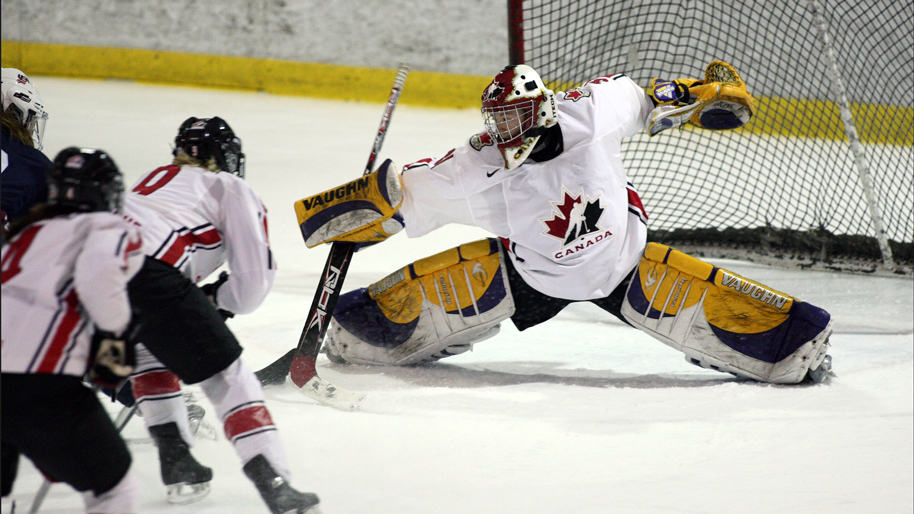
During her time in the CWHL, Knox also served as the co-chair of the CWHLPA and later became a founding board member of the Professional Women's Hockey Players Association (PWHPA). In 2020, when the COVID-19 pandemic and Black Lives Matter movement called for a time of reflection, Knox made the decision to step down from the board, inviting Sarah Nurse to join and be an influential voice.
“I wanted to make sure [Sarah Nurse] had a voice at the table,” says Knox. “We’re really lucky to have her as an advocate for our sport and she’s also doing so much outside of hockey, it would have been such a missed opportunity if I hadn’t invited her."
Today, Knox does commentary during PWHPA Dream Gap Tour games, while serving as an advisor to the PWHPA. Away from the rink, she is a firefighter with the Town of Oakville, and if that wasn’t enough on her plate, she along with long-time friend [and fellow Team Canada alumna] Karell Emard, launched a podcast called The Knoxy & Kax Show on SDPN last year.
“Before the last Olympic Games, [SDPN CEO] Adam Wylde came up to me and said, ‘We want to do a women’s hockey podcast and I want you to be the host,’ and it’s been so fun,” Knox says.
The podcast, which began as a partnership between SDPN and the PWHPA, features some of the biggest names in women’s hockey sharing their stories and experiences in and around the game. Past guests include familiar names like Marie-Philip Poulin, Jocelyne Larocque, Sarah Nurse, Emily Clark and Natalie Spooner.
“There’s a huge learning curve but what a cool opportunity to hear from these players, hear about their journey and help people understand why what we are is so important,” says Knox.
“After two seasons, we’re doing it on the fly and feeding off each other,” Emard says. “When Liz and I were playing, we never had a chance to see and get to know our idols, so I think it’s super important for our listeners to listen to not just national players, but professional players too, so they can hear different stories and that there is more to achieve." "For too long, we’ve judged our career on whether or not we made the national team, but a very successful career is also playing professional and being successful within those leagues.”
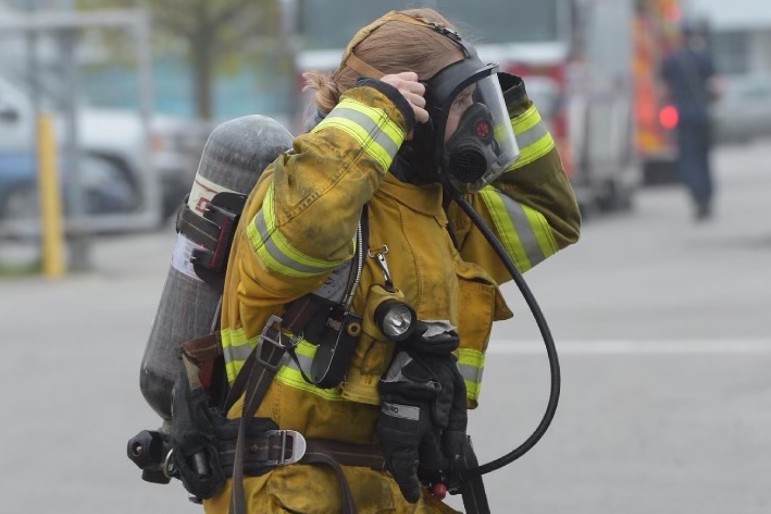
In addition to hosting a podcast and her work with the PWHPA, Liz Knox is also a firefighter with the Town of Oakville. (Photo supplied)
Inspiring the next generation
Through events like the recently completed Rivalry Series and 2023 IIHF Women’s World Championship next month in Brampton, Ont., Knox hopes the added exposure to women’s hockey brings new fans and athletes to the sport.
“It’s representation and the fact you can see yourself in that person out there,” says Knox. “Now, you get to see people like Sarah Nurse, like Cassie Campbell, all these incredible people and you see them crushing these goals on the ice or on national broadcasts, in a space that hasn’t traditionally welcomed them. It’s going to invite and inspire more dreams, more people and young athletes to chase those dreams.
“The more inclusive we make this space, the more we will learn about ourselves and each other and make for some fun hockey to consume.”
As women’s hockey continues to expand and grow, Emard has no doubt that Knox will continue to play a big role in leading the way.
“She’s always been the voice of the players,” Emard says. “The players are very trusting of her and I hope she keeps doing it because we all feel like we are in good hands when she is around.”
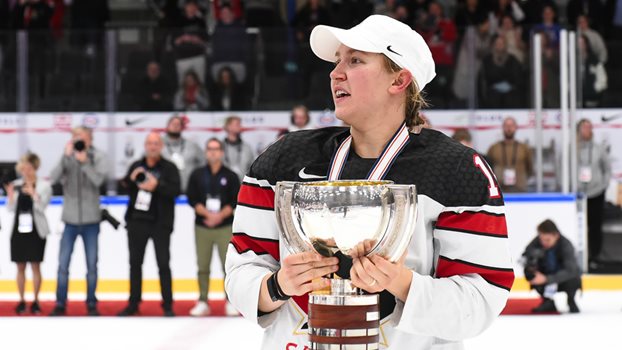
Inspiration through leadership
On International Women’s Day, some of the most influential women in hockey speak about the importance of inclusion and representation in different positions of the game
In the hockey community, the women’s game has never been stronger.
To celebrate International Women’s Day, Hockey Canada has collaborated with some of the most successful women in the game to answer one question:
Why is it important to see women in influential positions in the game?
Alex Clarke (Drake, Sask.)
Clarke began officiating when she was 11 years old. and became the first woman to officiate in the Western Hockey League (WHL) in September 2021. She is also one of the first women to officiate in the American Hockey League (AHL), and was chosen to represent Canada on the ice as an official at the 2022 Olympic Winter Games.
Angela James (Toronto, Ont.)
A Hockey Hall of Fame inductee, four-time world champion and a member of the Order of Canada, James recorded 33 goals and 54 points in 50 games played with Canada’s National Women’s Team from 1990-1999. Today, James is the co-owner and general manager of the Toronto Six in the Premier Hockey Federation.
Brianne Jenner (Oakville, Ont.)
A two-time Olympic gold medallist, three-time world champion and long-time alternate captain, Jenner is a leader on and off the ice with Canada’s National Women’s Team. She is closing in on 150 games wearing the Maple Leaf, recording 106 points (41-65—106) to rank 13th in all-time Team Canada scoring.
Kori Cheverie (New Glasgow, N.S.)
Since joining the Team Canada program in 2018, Cheverie has become a familiar face behind the bench, helping guide Canada to gold medals at the 2021 and 2022 Women’s Worlds, and the 2022 Olympics. She made history last spring, becoming the first woman to serve as a coach with a men’s national team at the 2022 IIHF U18 World Championship.
Manon Rhéaume (Lac Beauport, Que.)
Rhéaume became the first—and still only—woman to play in an NHL game with the Tampa Bay Lightning in 1992. As a member of Canada’s National Women’s Team, the netminder is a two-time world champion and a silver medallist at the 1998 Olympics—the first year women’s hockey was included in the Games.
Marian Jacko (Wiikwemkoong First Nation, Ont.)
Elected to Hockey Canada’s Board of Directors in December 2022, Jacko is the Assistant Deputy Attorney General for the Indigenous Justice Division of the Ontario Ministry of the Attorney General. Currently, she is the President of the Little Native Hockey League ("Little NHL"), the President of Anishnawbe Health of Toronto, and the head coach of the U18A team in North York.
Stephanie White (Toronto, Ont.)
A former coach of women’s hockey who won gold with Canada’s National Women’s Team in 2007 and silver in 2009 with Canada’s National Women’s Under-18 Team, White is currently BC Hockey's chair of the board. She is currently the director of athletes at the University of Windsor and previously served as the director of sport at Western University.
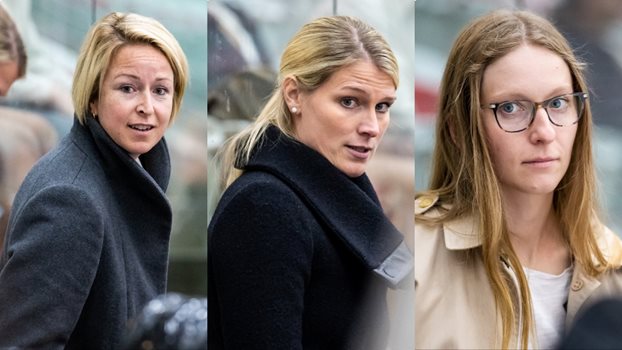
If you see it, you can be it
Growing the game beyond the ice, Courtney Birchard-Kessel, Tara Watchorn and Stefanie McKeough made history as the first all-women coaching staff in under-18 program history
On the ice, Canada’s National Women’s Under-18 Team completed a three-game sweep of the United States in its summer series for the first time since 2007, but behind the bench, the coaching staff was making a little history.
Head coach Courtney Birchard-Kessel and assistants Stefanie McKeough and Tara Watchorn became the first all-women coaching staff in the history of Canada’s women’s U18 program. The result against the Americans was terrific, but the impact the series will have on growing women’s hockey goes beyond the ice.
“We’re in such a good time for women in coaching positions,” says Watchorn. “With pioneers like Hayley Wickenheiser and Caroline Ouellette, it’s great to see that women are starting to get in on the coaching side now and there’s a path to making coaching a career, which was really tough before. It’s really cool to see that transition where a wave of players who have already had a hockey career now able to move into coaching.”
To add to the accomplishment, all three members of the coaching staff are alumnae of National Women’s Program, having shared the ice together at camps and events over the last decade and a half, including a golden experience with Canada’s National Women’s Development Team at the 2011 MLP Cup, the only time the three wore the Maple Leaf together.
Combined, the three played 183 international games; Birchard-Kessel appeared in three IIHF Women’s World Championships, winning gold in 2012, Watchorn was an Olympic gold medallist in 2014 and played at three women’s worlds, and McKeough was part of the Canadian contingent at the 2009 IIHF World Women’s U18 Championship.
So coming back to the national program and having a reunion of sorts behind the bench meant a little bit extra for the trio.
“Between the three of us, our paths have crossed so many times throughout our own playing careers, and we have a lot of shared experiences and values we learned along the way,” Watchorn says. “For the under-18 age group, they’re so young and for a lot of them, it’s their first high-performance environment. So, for us to be able to understand and anticipate those stressors and telling them to focus on just being present, enjoying the time with teammates and making them better, you’re always going to play better.”
Watchorn has always wanted to be a coach. Even during a successful playing career that included Olympics, women’s worlds and hoisting the Clarkson Cup with the CWHL’s Boston Blades of the CWHL in 2015, Watchorn knew she wanted to pass on the positive experiences she’s had in the game.
“I am so fortunate to be part of cultures and teams that truly changed my life,” says the Newcastle, Ont., native, who is the first-ever head coach of the women’s program at Stonehill College, “so my hope is to create that environment and culture for other young women who can come through and be inspired [and] challenged, and become leaders and people who impact the world.”
Although coaching isn’t always the plan for players, hockey sometimes finds a way back. After hanging up her skates after a five-year college career at the University of Wisconsin (which included an NCAA national title in 2011), McKeough thought coaching was one of the last things she would be doing with her free time.
But the game eventually took her to Sweden, where she was able to get a taste of coaching and was bitten by the bug. To this day, McKeough admits it continues to surprise her every time she walks into the rink as a full-time coach.
“Hockey players are humans first,” the Carlsbad Springs, Ont., product says. “I learned through coaching that we have to help the person before helping the hockey player, and being able to be there for somebody is something that motivates me when I show up at the rink every day.”
As an assistant coach with the University of Ottawa, McKeough gets to work and learn from veteran U SPORTS coaches like Vicky Sunohara (Toronto), Rachel Flanagan (Guelph) and Gee-Gees bench boss Chelsea Grills. They’ve been able to set examples for McKeough previously as a player and now as a coach.
“Vicky was actually one of my coaches at my first U18 camp and Rachel was an assistant coach during one of my years on the under-22 team, so now that I get to work with them, I’ve been able to gain a more deeper respect for what they do as coaches.
“By having those ’If you see it, you can be it‘ situations, I’ve been able to continue to build those relationships with other coaches and the players.”
The growth and visibility of women in coaching and leadership positions continues to grow. Just this summer, Hockey Canada alumna Jessica Campbell was hired as an assistant coach by the AHL’s Coachella Valley Firebirds, longtime national team defenceman Laura Fortino took on the same role with the OHL’s Hamilton Bulldogs, and 2022 Olympic gold medallists Marie-Philip Poulin and Rebecca Johnston took on player development roles with the Montreal Canadiens and Calgary Flames, respectively.
“Diversity in leadership is so valuable,” Watchorn says. “For people to bring different backgrounds, and to be able to relate to the players, it’s just so important. If you see it, you can be it.”
For more information: |
- <
- >
